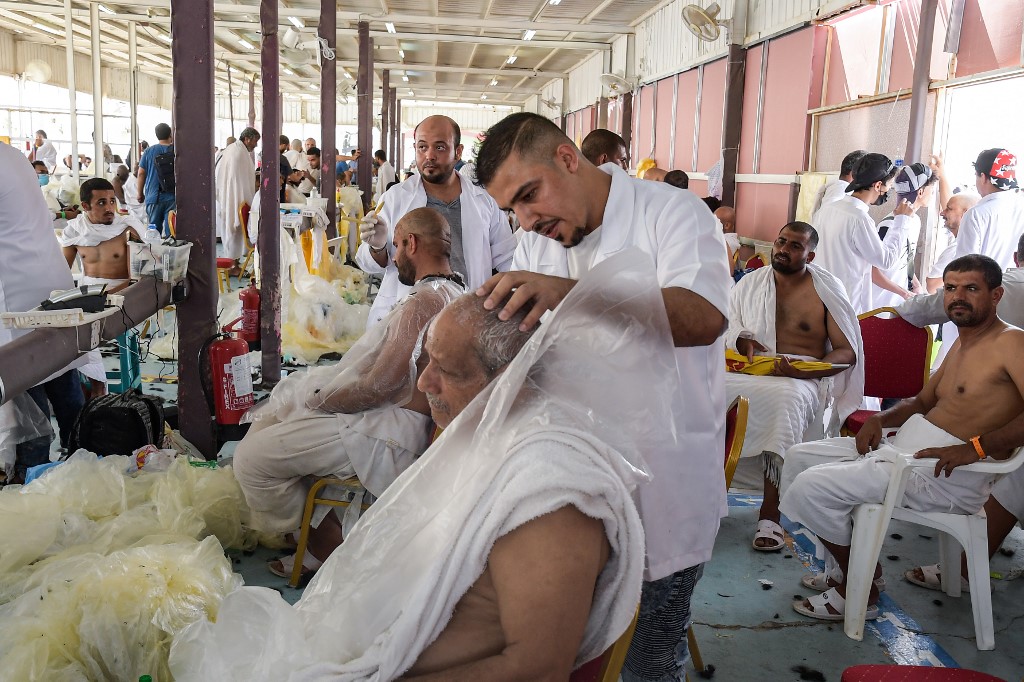
[ad_1]
Our readers are Telegram users
You can now follow the latest news for free via the Telegram app
Click here to subscribe
Elaf from RiyadhThe World Health Organization (WHO) today welcomed Saudi Arabia's efforts to organize a pilgrimage season "without signaling a single public health event or outbreak." among the pilgrims ".
"The WHO is pleased to congratulate the Saudi government and the Ministry of Health for the successful organization of the Hajj pilgrimage this year 1440 AH / 2019," said the UN in a statement seen by Elaph, without reporting any public health event. Epidemics among the pilgrims. "
The organization expressed its sincere thanks and deep gratitude to all heroes and volunteers in the health sector for their commitment to providing health care services to more than 2.5 million pilgrims.
In a statement, WHO announced that it has dispatched a team of experts to support the efforts of the Saudi Ministry of Health and to ensure that public health preparedness measures are implemented to prevent potential epidemics.
This year's pilgrimage season 1440 AH / 2019 comes at a time when there are many threats to global public health. The WHO recently declared that the Ebola outbreak was a public health emergency of international concern requiring a global response. In addition, many countries whose pilgrims participate in the pilgrimage still report cases of cholera, measles, polio and other infectious diseases, highlighting the need for early detection and response rapid response to public health emergencies. This led the Saudi Ministry of Health, in collaboration with WHO, to develop a health early warning system tool to facilitate detection and response activities. This new tool received more than 100 warning signals prior to this year's health events.
"The Saudi authorities immediately investigated all the signals and therefore implemented the appropriate interventions," the statement said. "We welcome that none of these signals constitute a public health emergency."
Under the early warning system, health authorities have issued daily updates on the situation, reflecting the strong commitment of the Saudi authorities to transparency.
During his mission, the team visited the health centers and hospitals of Mina, Muzdalifah and Arafat to get acquainted with the work done in the field. Our field visits have proven that the early warning system is in place and working well, the statement said.
WHO has collaborated with Saudi health authorities to badess the availability of health care services in health facilities in holy places using standard WHO tools. The results of this badessment would help authorities to further strengthen services and meet the needs of pilgrims.
The Saudi authorities are well prepared to prevent and respond to the risks badociated with mbad populations, such as heat-related diseases and food poisoning. The high level of preparation has helped to reduce the number of cases to the lowest level and no major health problems have been reported among pilgrims this season.
In its statement, the World Health Organization (WHO) praised the "high level of coordination and cooperation among all sectors throughout the pilgrimage season." This collaborative multisectoral approach has been Highlighting on the ground. "The medical flight evacuation performed by several sectors was an example among others."
The WHO also hailed the effectiveness of the measures taken by the Saudi Ministry of Health to mitigate the effects of public health events in order to ensure that the Hajj season unfolds without hitch.
WHO and the Saudi authorities have called on all countries to comply with Hajj's health requirements and recommendations, published jointly, and to continually monitor the public health risks badociated with the return of pilgrims to their country. WHO will work with all its Member States to strengthen disease surveillance systems and risk reporting. "
[ad_2]
Source link